Welcome to the U.S. National Science Foundation OOIFB website. The U.S. National Science Foundation (NSF) Ocean Observatories Initiative Facility Board (OOIFB) provides independent input and guidance regarding the management and operation of the U.S. National Science Foundation Ocean Observatories Initiative (NSF OOI).
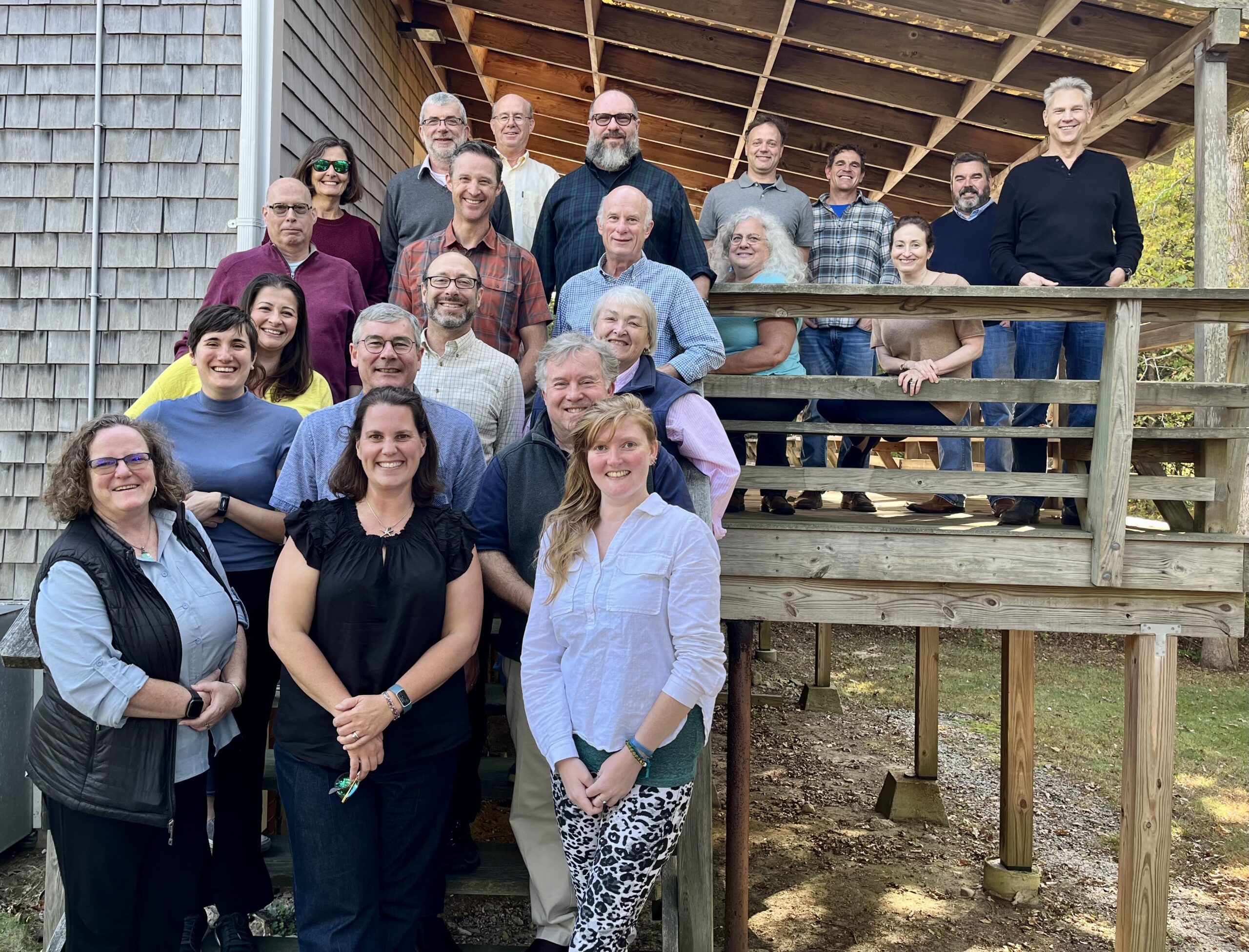
Photo credit: Karen Besson.

2024 NSF OOI COMMUNITY WORKSHOP: PIONEER MAB ARRAY
September 10-12, 2024
Old Dominion University, Norfolk, VA
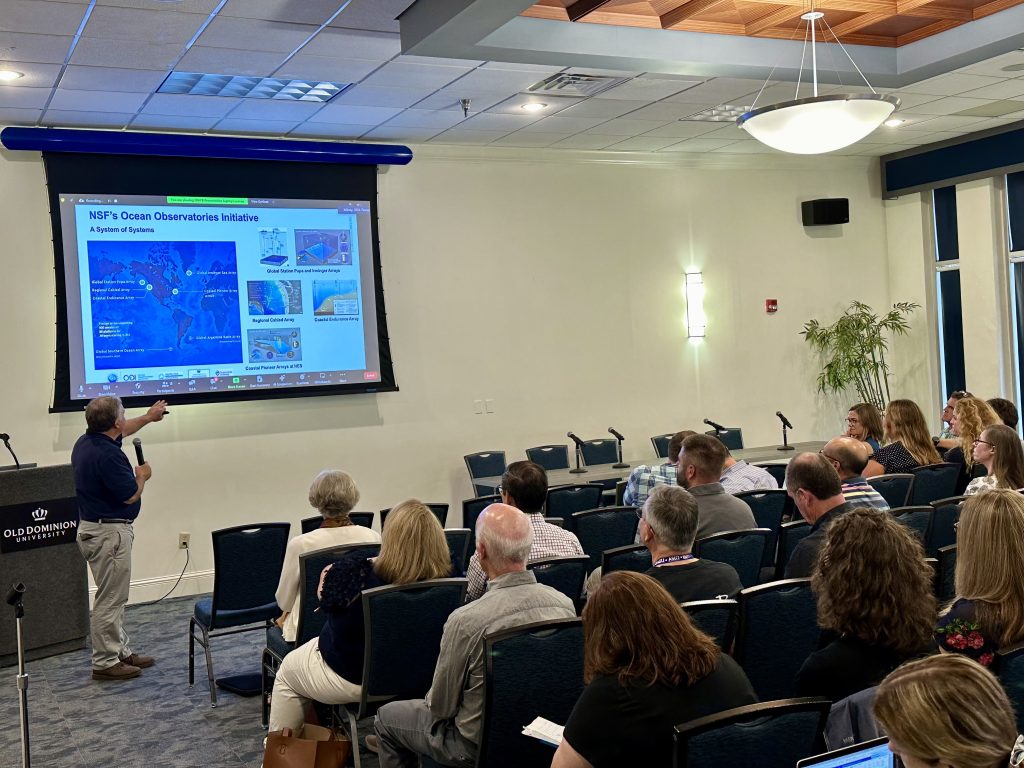
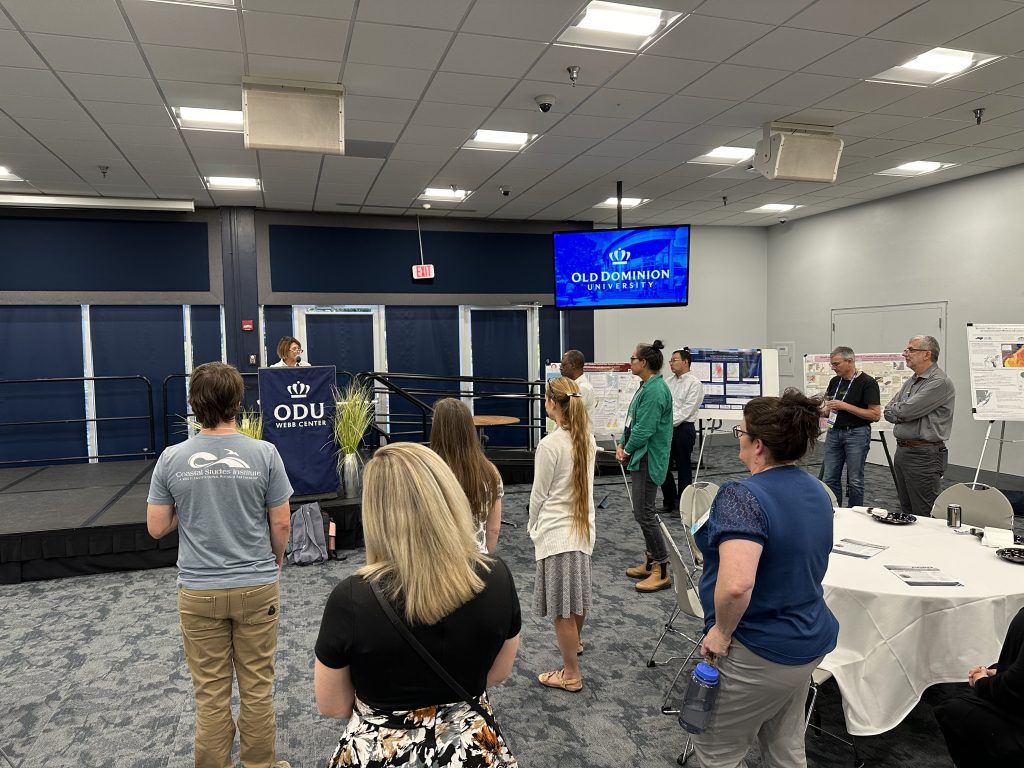
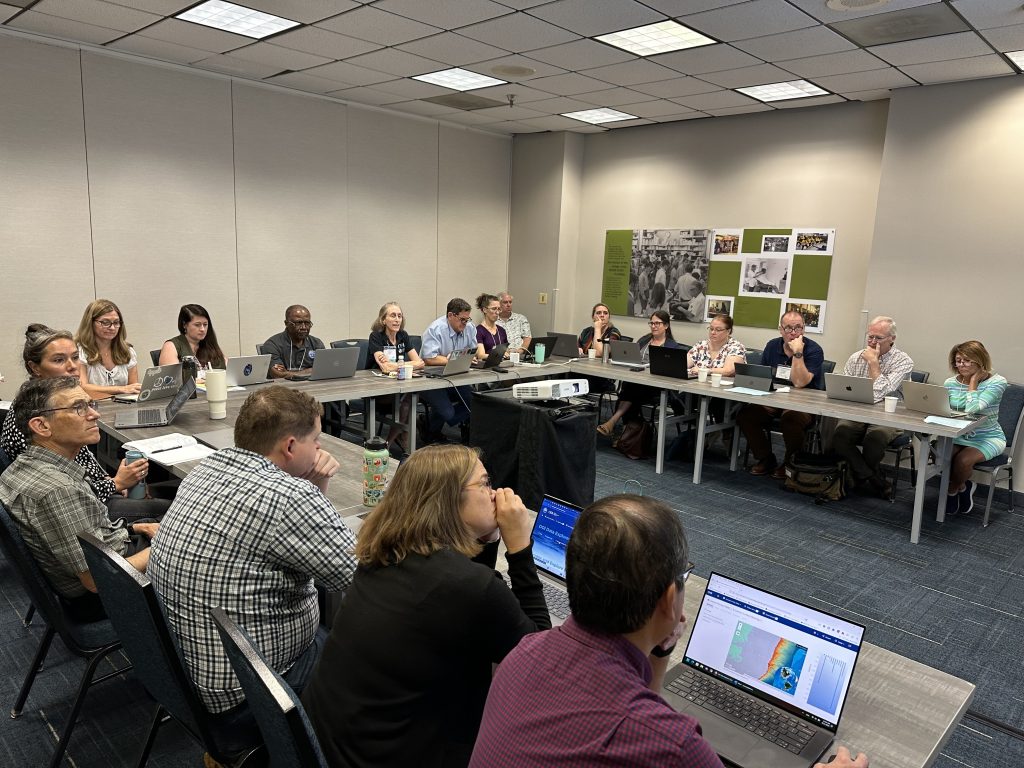
The U.S. National Science Foundation Ocean Observatories Initiative Facility Board (NSF OOIFB) hosted a U.S. National Science Foundation (NSF) Ocean Observatories Initiative (NSF OOI) Community Workshop focused on science and education initiatives that can be addressed using data from the NSF OOI Pioneer Array, which has been relocated to the Southern Mid-Atlantic Bight (MAB). The event brought together a diversity of scientists, resource managers, educators, and other stakeholders to brainstorm and collaborate on the capabilities of the Pioneer MAB Array and the cutting-edge research that can be done in this new location. The workshop provided a forum to facilitate cross-network collaborations, identify strategies for better engaging current and future users of NSF OOI, and foster the research and proposal development process. NSF OOI Program team members and NSF representatives are available of you have any questions and to provide information on NSF OOI operations.
For more details and to apply click HERE

NSF OOIFB Town Hall at Ocean Sciences Meeting 2024
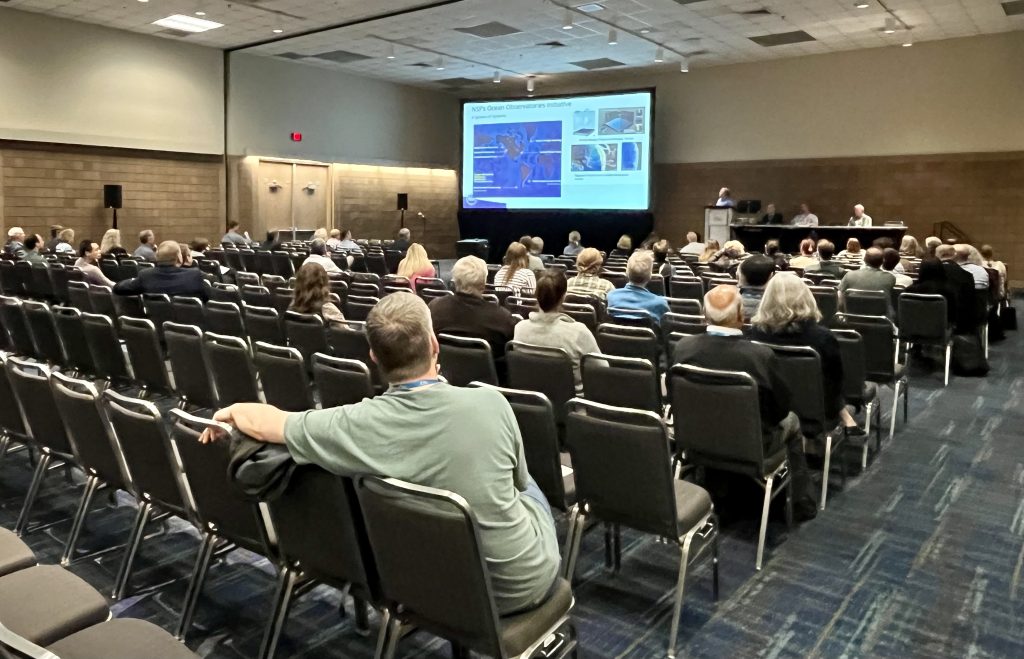
The community had the opportunity to hear the latest information about the NSF OOI facility, including an update on the relocation of the Pioneer Array; learn about NSF updates; and meet the NSF OOIFB members. The second half of the Town Hall was comprised of an interactive, panel discussion: Enhancing your Science with NSF OOI Data: A Community Discussion about Maximizing OOI Data Use. Panelists included:
- Chris Edwards, OOIFB/ University of California Santa Cruz
- Jim Edson, NSF OOI/Woods Hole Oceanographic Institution
- Kristen Fogaren, OOIFB-DSC/Boston College
- Denise Bristol, OOI Data Labs/Hillsborough Community College
- Deborah Hernandez, Southeast Coastal Ocean Observing Regional Association (SECOORA)
For more details on the Town Hall click HERE

NSF OOI Bio-Optics Sensor Summer School

The NSF OOIFB hosted a 2023 summer school that focused on NSF OOI optical attenuation and absorption data. It reviewed how to access, analyze, and interpret data from the Sea-Bird AC-S. The NSF OOI Bio-Optics Sensor Summer School was held July 17-21, 2023 at Oregon State University in Corvallis, OR. Advanced graduate students, post-doctoral fellows, and early career scientists participated and presented on individual explorations of NSF OOI data. For additional details and information click HERE.

